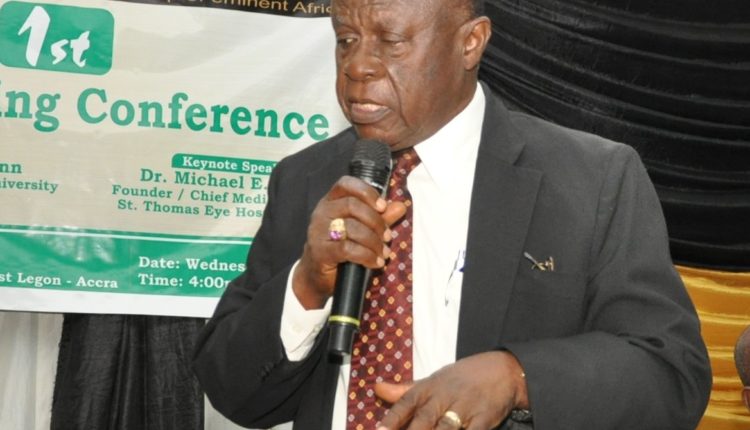Nobles Forum wants GETFund probed, as ‘beneficiaries’ reject A-G’s report
The West Africa Nobles Forum is demanding an immediate probe into the operations of the Ghana Education Trust Fund (GETFund), whose operations have come under scrutiny for granting scholarships to people who cannot be classified as needy.
The think tank said the outcome of the Auditor-General’s report pointed to a deep-seated rot at the state institution, meant to fund educational infrastructure and build the country’s human capital.
“It is outrageous and unimaginable to think some politicians will take funds that would extend educational opportunities to the underprivileged in our society.
“It is shocking that while some recipients recorded in the audit, insist they have not received the funds, some of these politicians are busily defending when they benefitted from the fund,” the President General of the forum, Dr Paul Fynn said.
The Auditor-General, in a ‘disturbing’ report, slammed the GETFund for “unlawfully” dishing out more than $4.7m in scholarships to persons who are anything but needy students.
The report listed some 86 beneficiaries, which included Members of Parliament, politicians, media practitioners, lecturers, heads of institutions and associates.
The Labour and Employment Minister, Ignatius Baffour Awuah’s son who bears a similar name, received a scholarship to study at the University of Portsmouth for a Bachelor’s degree in International Relations and Politics.
His living expenses and tuition amounted to more than £24,000.
Deputy Majority Leader Sarah Adwoa Safo, who is a daughter to a rich philanthropist, Apostle Kwadwo Safo, also enjoyed a conference at the Harvard Kennedy School.
Her conference cost the taxpayer $29,000 including living expenses.
The Education Minister, Matthew Opoku Prempeh, got a scholarship at Harvard University in the US to study “National and International Security” costing $24,000, including living expenses.
But Dr Fynn said regardless of the processes those political elites went through to get their scholarship; they did not deserve it because “they are not needy. Neither do they need support to go back to school. It’s just blatant abuse of their position and power.”
He urged the Auditor-General to surcharge all the politicians who received the funds to serve as a deterrent to others who have intentions of abusing the public purse.
“We must make them refund every pesewa of the funds they collected for their courses. It is unacceptable and smacks of greed.
“Just listen to the stories of the young people who applied for the fund but didn’t get it, and you see why those politicians should bow their heads in shame,” he said.
While public anger swelled against influential people who enjoyed scholarships at the expense of brilliant but needy people, it emerged that some people captured as beneficiaries did not receive a pesewa.
At least three people have come out to deny ever receiving any money from the fund. One is the Deputy Minister of Agriculture, Kennedy Osei Nyarko, who has asked for an apology. Two others, Ramana Shareef and Anita Musah, claimed that although they received their confirmation letters, they never received the money and lost their opportunity to study abroad.
Dr Fynn said since people purported to have enjoyed the scholarship were denying ever receiving the money, it was prudent that an independent body investigated the claims since there were signs of shady deals.
“Who received the money? What account were the funds transferred to? Are there proofs that GETFUND disbursed those funds,” he asked as he urged the government to look further into the scandal.
In a report littered with a litany of infractions, the Auditor-General said it found over 1,200 beneficiaries who did not submit basic documents such as admission letters.
But this failure did not stop the GETFund administrator from approving financial aid to the applicants.
The report speculates that it is possible these applicants “searched for schools after they had been awarded the scholarships.”
Regarding this, Dr Fynn wondered why GETFund was quick to grant scholarships to people to study courses abroad when such funds could stay in the country to financially support Ghanaian universities offering the same programmes.
“We have equally good universities, both private and public. Why are we in a hurry to pump money into universities outside the country, even for undergraduate courses,” he asked.



